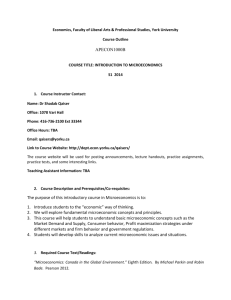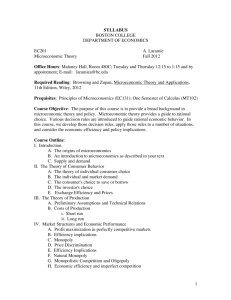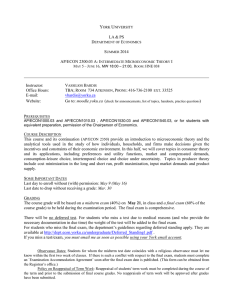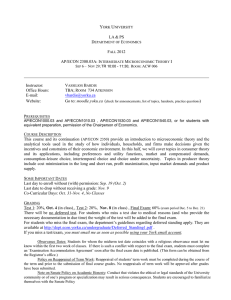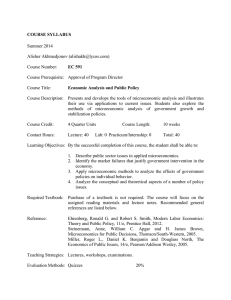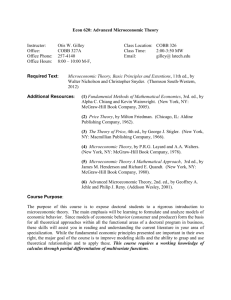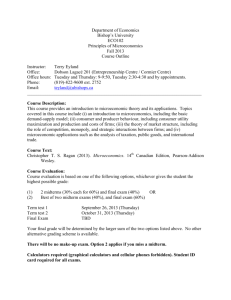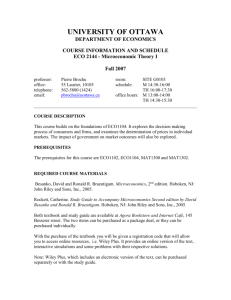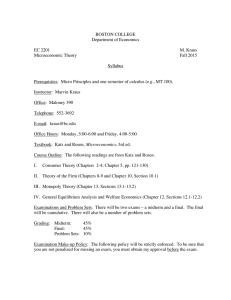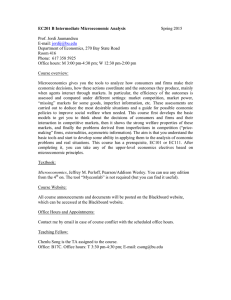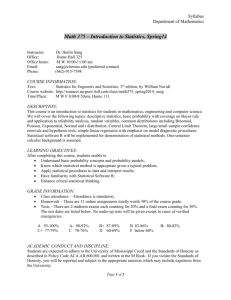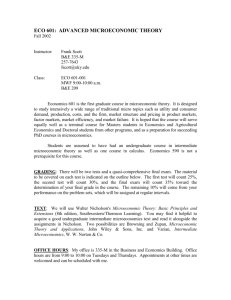Economics 301
advertisement
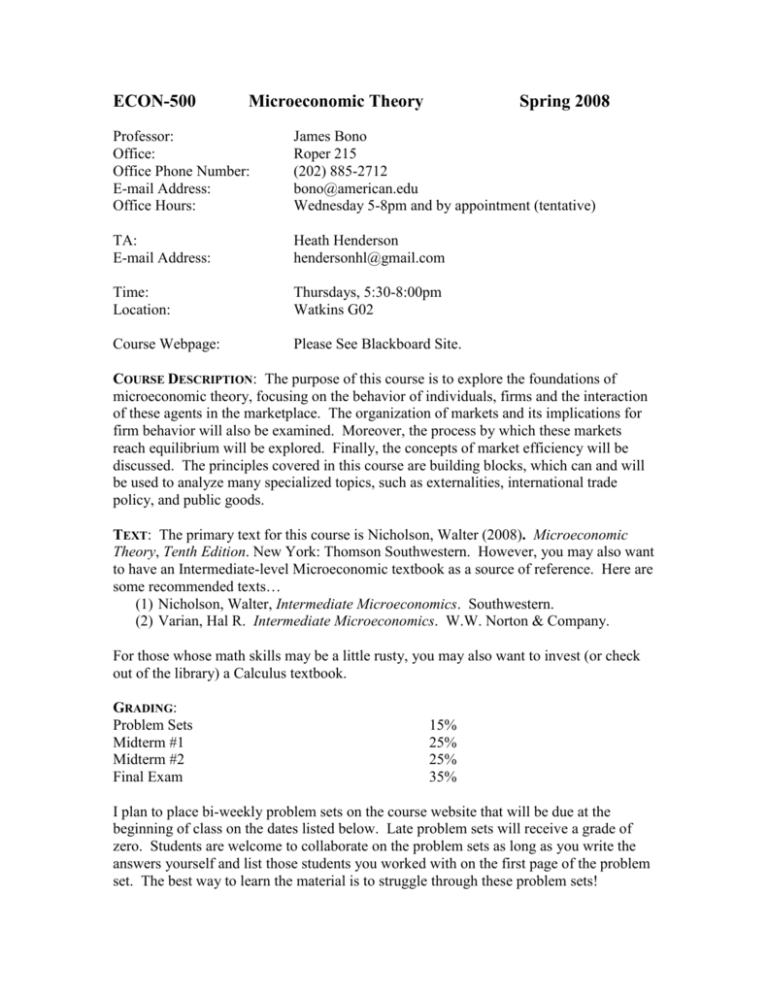
ECON-500 Microeconomic Theory Spring 2008 Professor: Office: Office Phone Number: E-mail Address: Office Hours: James Bono Roper 215 (202) 885-2712 bono@american.edu Wednesday 5-8pm and by appointment (tentative) TA: E-mail Address: Heath Henderson hendersonhl@gmail.com Time: Location: Thursdays, 5:30-8:00pm Watkins G02 Course Webpage: Please See Blackboard Site. COURSE DESCRIPTION: The purpose of this course is to explore the foundations of microeconomic theory, focusing on the behavior of individuals, firms and the interaction of these agents in the marketplace. The organization of markets and its implications for firm behavior will also be examined. Moreover, the process by which these markets reach equilibrium will be explored. Finally, the concepts of market efficiency will be discussed. The principles covered in this course are building blocks, which can and will be used to analyze many specialized topics, such as externalities, international trade policy, and public goods. TEXT: The primary text for this course is Nicholson, Walter (2008). Microeconomic Theory, Tenth Edition. New York: Thomson Southwestern. However, you may also want to have an Intermediate-level Microeconomic textbook as a source of reference. Here are some recommended texts… (1) Nicholson, Walter, Intermediate Microeconomics. Southwestern. (2) Varian, Hal R. Intermediate Microeconomics. W.W. Norton & Company. For those whose math skills may be a little rusty, you may also want to invest (or check out of the library) a Calculus textbook. GRADING: Problem Sets Midterm #1 Midterm #2 Final Exam 15% 25% 25% 35% I plan to place bi-weekly problem sets on the course website that will be due at the beginning of class on the dates listed below. Late problem sets will receive a grade of zero. Students are welcome to collaborate on the problem sets as long as you write the answers yourself and list those students you worked with on the first page of the problem set. The best way to learn the material is to struggle through these problem sets! Exams cannot be missed, and makeup exams will not be given under any circumstance. Students who must miss an exam due to a family or medical emergency, and can document that emergency, can scale their other exam scores up proportionately. COURSE OUTLINE: I. Introduction and Math Review (Chapter 2) Week 1 Homework #1 Due Week 2 II. Consumer Behavior (Chapters 3-6) Homework #2 Due III. Producer Behavior (Chapters 9-11) Weeks 2 & 3 Week 4 Weeks 4 & 5 Homework #3 Due Week 6 Consumer and Producer Review Week 6 Midterm #1 Week 7 IV. Competitive Markets and Equilibrium (Chapters 12-13) Week 8 V. Market Power (Chapters 14-15) Weeks 9 & 10 Homework #4 Due Week 11 VI. Public Goods and Externalities (Chapter 19) Week 11 VII. Economics of Information (Chapter 18) Week 12 Homework #5 Due Week 13 Midterm #2 Final Review Week 13 Week 14 Final Week 15
